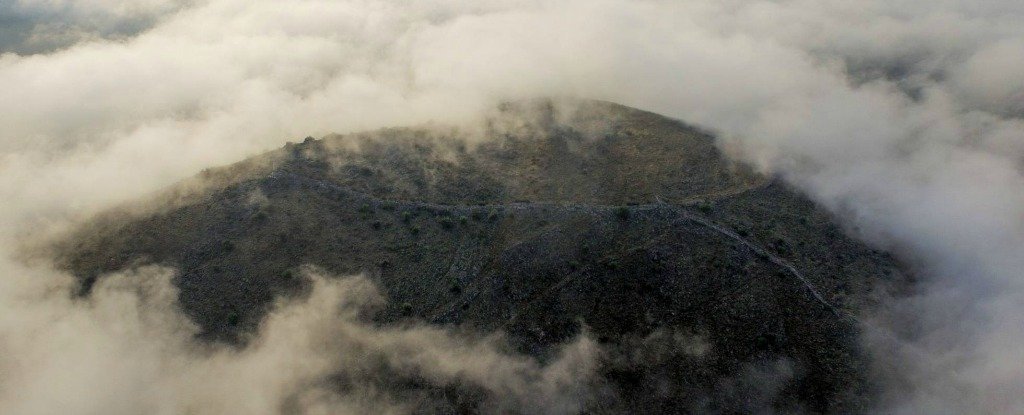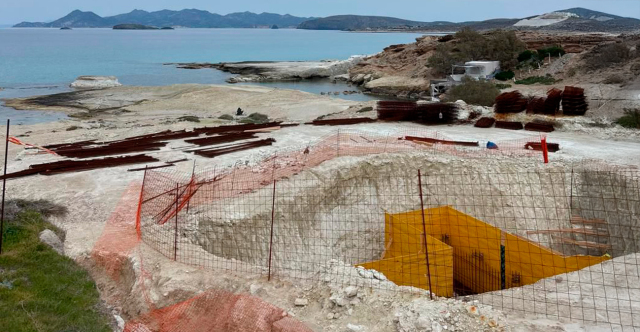Archaeologists have discovered the ruins of a lost city atop a hill on the great Thessalian plains of Greece, some 300 kilometers (190 miles) north of Athens. Dating back to around 2,500 years ago, the settlement is largely buried underground, which is why researchers in the area had failed to spot it until now.
While exploring the ruins of a village called Vlochós on the Strongilovoúni hill, researchers came across the remains of towers, walls, and city gates belonging to an ancient town that had previously been considered little more than a backwater, largely due to the fact that no other relics could be seen on the ground.
Fortress walls, towers and city gates are clearly visible from the air.
Yet after taking a closer look, the team quickly realized that they were standing on the site of a former metropolis. “'We found a town square and a street grid that indicate that we are dealing with quite a large city. The area inside the city wall measures over 40 hectares [99 acres],” explained team leader Robin Rönnlund in a statement.
“We also found ancient pottery and coins that can help to date the city. Our oldest finds are from around 500 BC, but the city seems to have flourished mainly from the fourth to the third century BC before it was abandoned for some reason, maybe in connection with the Roman conquest of the area.”











